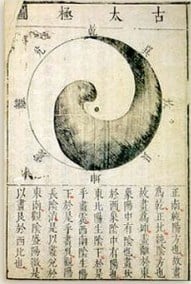
Chinese medicine operates on a set of principles different from those upon which western science is founded. It is completely foreign both in philosophy and practice. As a result, many of us here in the West view it either as superstitious mumbo-jumbo, or an undiscovered miracle that just might hold the key to a long-term problem, or newly diagnosed danger. The truth, as is so often the case, lies somewhere in between.
It is easy to lure oneself into thinking that because something is “traditional” it is good. Likewise, in our ever-forward tumble into what is new and modern it is easy to discard simple and effective methods that are decidedly low-tech. It is not uncommon when seeking a solution to life threatening condition or long-term health problem to hope for a miracle cure; often people turn toward something like Chinese medicine and acupuncture hoping for that bottom of the ninth inning home run.
Sometimes it does resolve a problem that other therapies did not touch. Other times it proves to be one more method that tried and failed. Not all medicines work at all times for all people. Just like a scalpel is the right tool for reconstructing a knee or excising a tumor, but not so useful in the treatment of infections or regulating a metabolic disorder; different problems require different solutions.
So when the question arises of “Can Chinese medicine or acupuncture treat cancer?” we have to dig deeper into the question, and be more specific in our inquiry. Many times the meaning behind that question is “Does Chinese medicine have something up its sleeve that Western medicine does not?” or “Is there something that will allow me to recover without treading the painful road of surgery, chemo and radiation?” As with any complex and difficult life situation, there are no simple answers.
In my 15 years of studying and practicing Chinese medicine and acupuncture I would say that I have seen it be of benefit to those fighting cancer. What I have seen is that patients tend to do better with tolerating chemotherapy and radiation. They have less fatigue, tolerate higher levels of radiation, better blood work, improved appetite and less nausea. I’ve seen patients come in with headaches and walk out without them. I’ve seen patients who were told they had six months to live prove their doctors wrong by a factor of three or more.
Can Chinese medicine treat cancer?
 Cancer is a complex disease and even Western medicine does not talk of a cure so much as of “survival times.” While there is research that suggests acupuncture boosts the immune system, that is just one aspect of dealing with cancer. What is clear is that acupuncture and Chinese medicine are useful in supporting the person who is struggling with cancer as it helps them to stay stronger through the aggressive Western medicine protocols, and helps to improve the quality of life as the side effects of chemo and radiation are minimized. What’s more, its ability to improve sleep, reduce anxiety, strengthen the digestion, lessen headaches and other discomfort, and create some quiet moments of calm in the storm are of benefit when marshaling the strength to withstand the cancer killing Western treatments.
Cancer is a complex disease and even Western medicine does not talk of a cure so much as of “survival times.” While there is research that suggests acupuncture boosts the immune system, that is just one aspect of dealing with cancer. What is clear is that acupuncture and Chinese medicine are useful in supporting the person who is struggling with cancer as it helps them to stay stronger through the aggressive Western medicine protocols, and helps to improve the quality of life as the side effects of chemo and radiation are minimized. What’s more, its ability to improve sleep, reduce anxiety, strengthen the digestion, lessen headaches and other discomfort, and create some quiet moments of calm in the storm are of benefit when marshaling the strength to withstand the cancer killing Western treatments.
Acupuncture and Chinese medicine do offer some solutions when it comes to supporting our body and spirit in the difficult journey of dealing with cancer. As this medicine has for centuries been used to support and strengthen the body’s normal homeostatic balance, it can also be an effective adjunctive therapy in the modern struggle against cancer.
